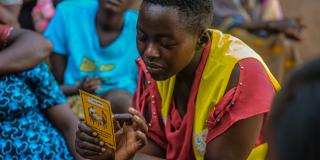
Sexual reproductive health is a right for all people, including young people, and they should have the privilege to enjoy it.
However, some young people, especially young girls, still face violations of sexual and reproductive health in many forms, such as stigmatisation, poor quality of services, being subject to forced marriages, and destructive cultural and societal norms.
In Rwanda, 2023 saw over 22,000 teenage pregnancies nationwide, alongside a concerning rise in HIV/AIDS cases among young people, who made up 35% of new cases. This was particularly evident in Kigali and in the eastern part, mainly in the Gatsibo and Nyagatare districts.
These issues often lead to multiple challenges: teenage motherhood, school dropouts, and community rejection.
Creating safe spaces
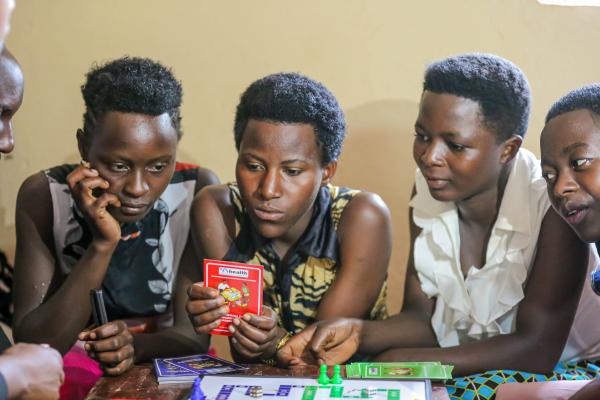
VSO's Safe Space is a community gathering platform, where young people from neighbouring villages meet on a weekly basis. These groups typically host 30 members, sometimes growing to 40 during school holidays. The space welcomes both girls and boys, regardless of their circumstances.
Each Safe Space includes three key items:
- Young community members
- A selected "auntie" (a married woman who acts as a confidant)
- Appointed "elder sisters" (former teen mothers who overcame similar challenges)
"We can meet anywhere that's convenient—under a tree, at a playground, or even in someone's home when they need group support," says Alice, an auntie from the Gatsibo district.
Building trust and support
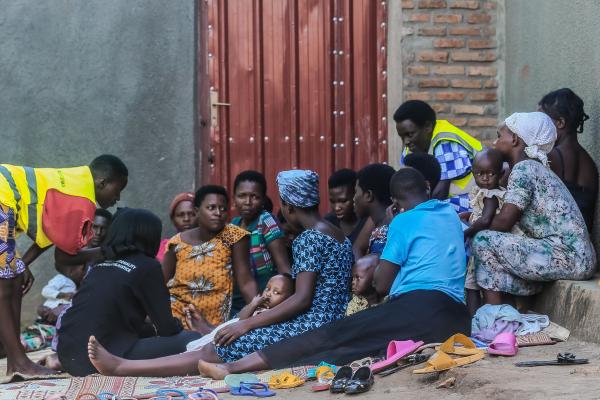
Alice has witnessed remarkable transformations from this space platform. "These gatherings have become a sanctuary for vulnerable young people," she shares.
"Teen mothers who once felt ashamed now openly share their stories. Their confidence has grown, and many have reconnected with their families or returned to school."
The support extends beyond emotional care. "We look after each other in practical ways too," Alice added. "When someone can't afford sanitary products or mutual health insurance, we pool our resources to help those most in need."
A story of hope
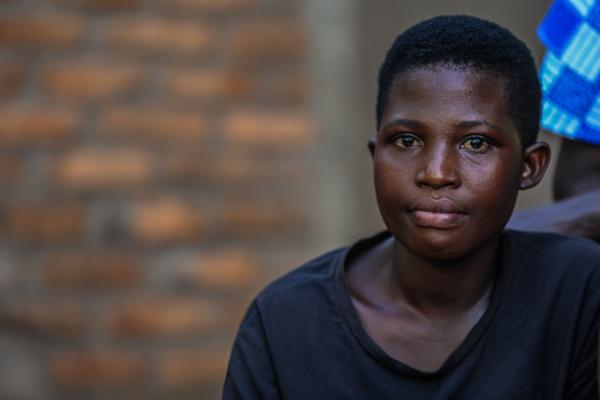
As a teenage mother, Penina was rejected by her family, found both emotional and practical support through the platform.
"The Safe Space members reached out to me at home, with care, showing me that I wasn't alone. They taught me about saving money, which helped me start a small business to support myself and my child. This space platform also provides vital sexual reproductive health education.
"We learn about reproductive health using simple manuals and cards from the Make Way. We all take turns to moderate our weekly sessions.
"Before joining, I struggled to access contraception because I couldn't afford health insurance. Now, through the safe space, I learned about youth corners at hospitals and the support that it provides." Penina recalls.
She feels that she has become more knowledgeable about her sexual reproductive in a fun and engaging way in the safe space session.
Making a difference
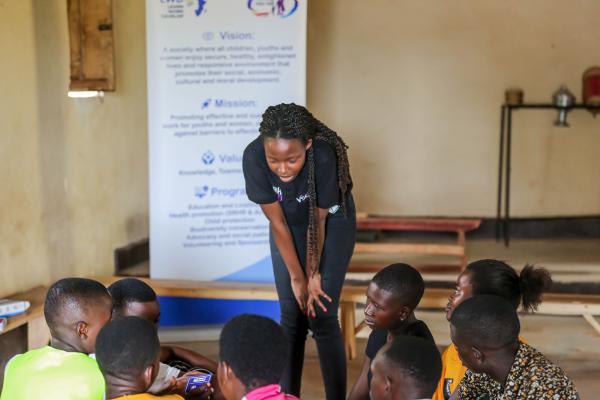
The Safe Space, supported by Make Way project, it primarily serves schools drop out teen mothers from Gatsibo and Nyagatare districts.
For the aunties, the role brings personal satisfaction. "As a farmer and mother, it's fulfilling to be someone these young girls trust," Alice shares. "Being able to support them in making informed decisions about their health makes me proud."
The need for male participation
Despite their success, Safe Spaces face one significant challenge: male participation remains low. "Since I joined, we've only had about three boys attend regularly," Penina notes. "Most sessions are predominantly female."
Alice emphasised the importance of accountability, ensuring that those who en-pregnant them should be held accountable.
While Safe Spaces are making remarkable progress in supporting teen mothers’ reproductive health, the project recognises he need to call for duty bearers and service providers to continuously provides support to the young ladies who are facing the gender-based violence in their communities, as most of many of them still can’t speak up.

Join us at the Regional Health Promotion Conference 2025
Taking place on Tuesday 18 March and Wednesday 19 March, 2025 at Safari Park Hotel in Nairobi, Kenya, this conference is designed to reimagine universal health coverage through the lens of intersectionality.
Through expert-led sessions, case studies, and collaborative discussions, this conference aims to ensure that health systems are responsive to the unique and intersecting needs of all individuals, particularly those most often excluded. This is not just an event—it is a movement to champion health equity and advance universal health coverage for every person, everywhere.
Read more
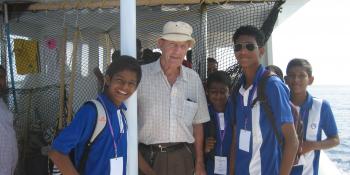
Transforming lives through education: Geoffrey’s VSO legacy
With a deep belief in the transformative power of education, Geoffrey from Norfolk, UK, has devoted his life both in the UK and abroad to making education more accessible for all.
